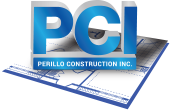So, after a long and thorough search, you’ve found the ideal property for your business. Be it retail space, office suites, or other business venture, there are a few questions you should ask yourself before you sign your commercial lease.
Your Business Structure
To protect yourself, your corporate structure should be in place before you sign a commercial lease. You should have filed your Articles of Organization if your business is an LLC or your Articles of Incorporation for a corporation and have them in hand from the Secretary of State before you enter into a lease agreement. In addition, you should have documentation that your lease has been approved by your board of directors if you have one, or by the officers of your LLC.
Your Commercial Lease
The next item on your agenda is reading your lease. It is long and tedious and possibly even boring, but you need to read it and understand everything in it. Look at the terms, read the definitions. Do you understand them? If not, ask. Do they meet your expectations? If not, now it the time to speak up. Are all the items you negotiated included? If not, don’t sign until they are added. Lease terms are always negotiable, but only until you sign on the dotted line. Check the dates, rent details, landlord obligations, your obligations, and what is required should you need to terminate the lease. Remember, your business is at stake and you need to be fully aware of the details of your commercial lease.
Your Common Area Maintenance (CAM)
Your lease likely includes the term CAM, or Common Area Maintenance” which is a percentage based on the size of the building being rented. This section of your commercial lease may be among the most difficult to understand, so don’t hesitate to ask questions, so you will know just what you are paying for. You shouldn’t be paying for your landlord’s expenses for marketing, legal, administration (over three percent) or anything else related to lease negotiation, benefits for your landlord’s staff, or build-out cost for other portions of the property. Your lease should include your rent, your portion of CAM, and your share of property taxes. By asking for clarification and understanding what you are paying for, you will remove the mysteries that sometimes find their way into rent payments.
Your Capital Expenditure Responsibility
In your lease, you’ll also find the term Capital Expenditures. The term refers to expenses related to the building’s structure like the HVAC systems, the roof, the foundation, and any other major repairs. The burden of repair or replacement should not be on you as the tenant. Ideally, you want to be responsible for general repairs up to an annual limit and a maintenance contract for items like HVAC repair.
Your Arbitration Clause
Your commercial lease, like most contracts today, probably has an arbitration clause stating that you and the landlord will settle any dispute that arises through arbitration rather than litigation. In your lease, you should have the right to participate in the decisions surrounding the arbitration, should the need arise.
Your Lawyer
Depending on the size and scope of the property you are leasing, you may need to call on your attorney to help you with the lease, making sure everything included is in your best interest. An attorney can review the commercial lease with you and aid you in any negotiations needed, advising you in creating an acceptable lease agreement for you and your company.

